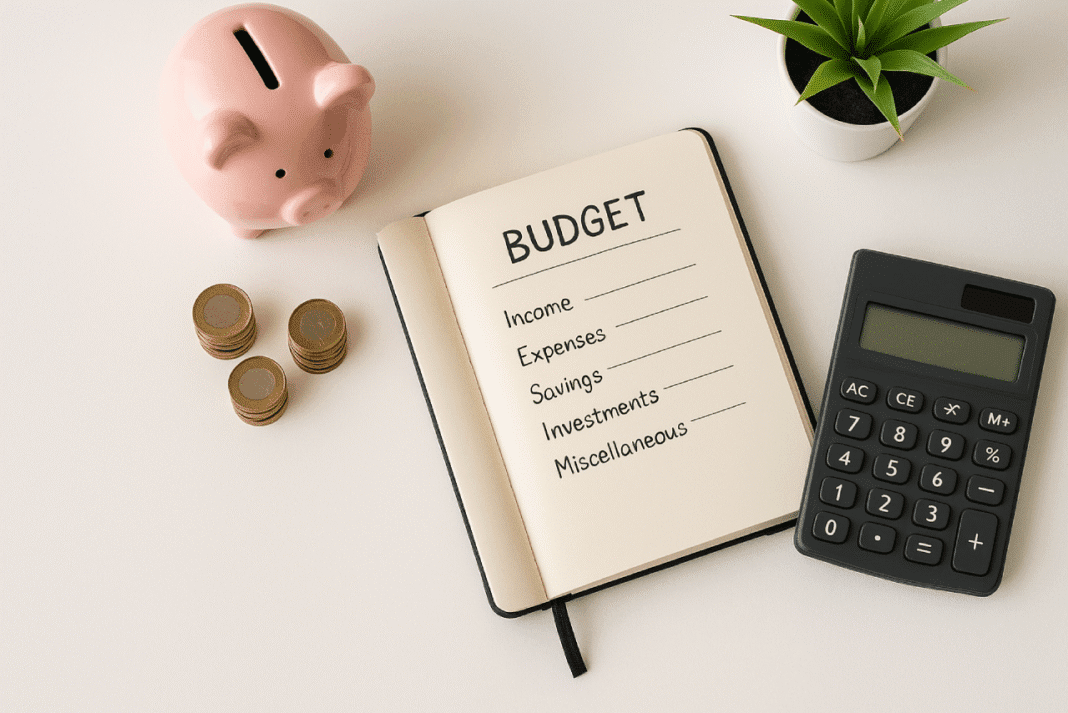In an age of economic disruption, rising costs of living, and financial misinformation, taking control of your personal finances is no longer a luxury—it’s a necessity. From young professionals to seasoned entrepreneurs, everyone is affected by financial choices made (or avoided) each day.
But financial mastery isn’t about luck, high income, or insider access. It’s about building small, smart, sustainable habits—and sticking to them. These timeless practices offer more than just wealth. They provide stability, clarity, and the confidence to pursue life on your terms.
In this definitive guide, we’ll explore seven powerful finance habits that can reshape your financial future—whether you’re just starting out or realigning after years of trial and error.
1. Start Early: Let Time Be Your Greatest Asset
The Magic of Compounding
Imagine planting a tree. You water it daily, and for months it shows minimal growth. But over years, it expands into something powerful. That’s exactly how compound interest works in finance.
Investing ₹5,000 monthly from age 22 to 37 can yield more wealth than starting at 35 with twice the amount—because the early starter gives money more time to grow.
Real Example:
Neha starts investing ₹5,000/month at 22 and stops at 37. Raj starts at 35 and invests ₹10,000/month till 60. Neha may still retire with more, thanks to the 13 extra years her money had to grow.
Action Plan:
- Start a SIP (Systematic Investment Plan) in a low-cost mutual fund
- Automate deductions—treat savings like a bill you must pay
- Don’t wait for a raise. Start with what you have
2. Build a Bulletproof Emergency Fund
Avoid Financial Ruin From Life’s Surprises
Your fridge breaks. You lose your job. A family member needs emergency treatment. These aren’t rare events—they’re inevitable over the course of a lifetime. An emergency fund is your first line of financial defense.
Plan your finance because without one, you’re likely to:
- Rack up credit card debt
- Withdraw from investments at a loss
- Delay other goals like home-buying or business expansion
What Works:
- Save at least 3–6 months of basic expenses
- Park it in a liquid fund or a separate savings account
- Replenish it after each use—it’s not a vacation fund
Peace of mind is a return no market can match.
3. Budgeting: The Art of Telling Your Money Where to Go
Every Rupee Should Have a Job
Budgeting is often misunderstood as a constraint when structure personal finance. But in truth, it gives you clarity, control, and direction. Think of your monthly budget as a financial map—one that ensures you don’t get lost in a world of EMIs, subscriptions, and sale-day impulse buys.
Methods That Work:
- 50/30/20 Rule: 50% needs, 30% wants, 20% savings/investments
- Use budgeting apps like Walnut, Goodbudget, or Excel trackers
- Track all expenses weekly. Monthly is too infrequent to correct mistakes
Bonus Tip:
Label goals clearly. “₹5,000/month for Goa trip” feels more motivating than “random savings”.
4. Insurance: A Non-Negotiable Pillar of Financial Health
Most People Learn This Too Late
One health emergency can wipe out years of savings. A sudden death can plunge a family into debt. Insurance is the only finance product you buy hoping to never use—but grateful for if you do.
Too many wait until a health scare or mid-life to get insured, when it becomes costlier and harder to qualify.
What You Need:
- Health Insurance: Even if your employer provides one, get a personal top-up
- Term Life Insurance: Essential if you have dependents. Avoid savings-cum-insurance plans
- Critical Illness / Disability Cover: Especially important if you’re self-employed
Expert View:
Insurance isn’t an investment. Don’t mix them. Keep protection and wealth-building separate.
5. Master Credit: Use Debt Strategically, Not Emotionally
Credit Can Build or Break Your Financial Life
Used wisely, credit is a tool that opens doors: home loans, business capital, and premium rewards. Used carelessly, it’s a gateway to stress and stagnation.
Good Debt vs. Bad Debt:
- Good Debt: Home loan, education loan (if it increases future value)
- Bad Debt: High-interest EMIs on gadgets, revolving credit card balances
Rules of Thumb:
- Keep credit card utilization below 30%
- Always pay the full balance, not minimum due
- Use debt to grow assets, not to maintain appearances
Regularly check your credit report (CIBIL in India) and correct any errors. A high credit score is as important as a good resume.
6. Invest in Financial Education Before Assets
Knowledge Protects You From Costly Mistakes
The internet is flooded with “hot tips” on stocks, crypto, and passive income. But without basic financial literacy, these are more dangerous than helpful.
Understanding finance fundamentals is 10x more valuable than memorizing stock tickers.
Topics to Learn:
- Inflation, interest rates, risk vs reward
- Taxation (especially Section 80C, 10(10D), LTCG)
- Asset classes: equities, debt, real estate, gold
Where to Learn:
- Books: The Psychology of Money, Let’s Talk Money
- Podcasts: Paisa Vaisa, Millennial Money
- YouTube: Pranjal Kamra, CA Rachana Ranade
- Courses: Coursera, Zerodha Varsity, Khan Academy
Financial literacy gives you a filter—so you don’t fall for scams or shiny distractions.
7. Review, Rebalance, and Realign—Every Year
What Got You Here May Not Get You There
Life changes. Your financial plan should too.
Whether you’ve switched careers, become a parent, received a windfall, or moved cities—every major life event is a signal to revisit your finance strategy.
What to Review:
- Are your goals still the same? Retirement age? Education fund?
- Do your investments match your risk appetite?
- Is your insurance coverage adequate?
Practical Tip:
Have a “Money Day” every year—on your birthday, New Year’s Day, or financial year-end. Sit down and ask: Is my money working as hard as I am?
Bonus Habits That Amplify Financial Success
These Might Not Be Core, But They Matter More Than You Think
1. Avoid Lifestyle Creep
Every time you get a raise, don’t automatically upgrade your car or move to a swankier flat. Allocate at least 50% of the hike to investing or debt reduction by restructuring your personal finance.
2. Set SMART Financial Goals
“Save more” is vague. “Save ₹10 lakhs for a down payment in 3 years” is specific, trackable, and actionable.
3. Talk About Money
Normalize money conversations with your spouse, kids, or aging parents. Silence creates confusion and sometimes, crises.
4. Track Your Net Worth
Your income is not your wealth. Calculate your assets minus liabilities at least twice a year. Apps like INDmoney or manual spreadsheets work well.
Final Thoughts: Wealth Is Built on Habits, Not Hype
Personal finance is a journey—not a destination. And on that journey, your habits are the vehicle. Not get-rich-quick schemes. Not lottery wins. Just small daily decisions—repeated with purpose over time.
These seven finance habits won’t just make you wealthier. They’ll make you calmer, more confident, and far more resilient in the face of uncertainty. Because ultimately, money doesn’t solve every problem—but it does give you options, and that’s a powerful thing.
So whether you’re 22 or 52, don’t wait for the “perfect time” to start. The best time is now. The second-best is tomorrow to correct your finance path of life. But waiting isn’t a strategy. Starting is.




